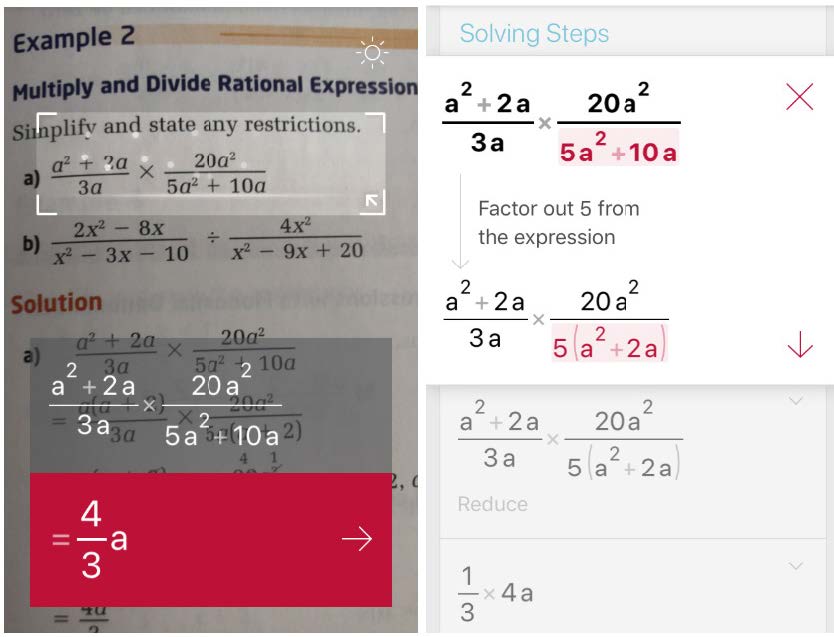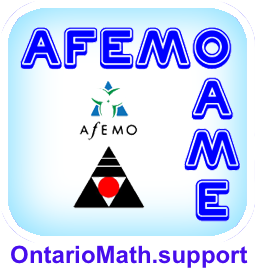President's Message - December 2018
What are the "basics" in math?

DAVID PETRO
david.petro@oame.on.ca
What are the "basics" in math? We hear it a lot in themedia, from our politicians, from our parents, and even from some of our own colleagues, but what does that mean? As you read this, it's December, and as I write it, it's October,and we have just started the year with a new motto: "Focuson the Fundamentals."
In the summer, before school started, we had tweets giving us a possible glimpse into what that might mean:
Ontario's math curriculum is failing our students. This week, we announced education consultations, which will include moving away from Discovery Math totraditional formulas and memorization techniques.Let's get our kids back to basics with proven methods of teaching that work. (@FordNation - https://twitter.com/fordnation/status/1033803567751024640)
For those who didn't look any further, that might be either good or bad, but the fact is, the Ontario Ministry of Education had released their teacher (www.edu.gov.on.ca/eng/teachers/teacher_guide_math_en.pdf) and parent(www.edu.gov.on.ca/eng/parents/parent_guide_math_en.pdf) guides for focusing on the fundamentals, and these weren't seismic shifts in what was already going on. It wasn't new curriculum. It wasn't a direction to move away from "discovery" math. It wasn't throwing out strands in the elementary grades. It wasn't instructions for children to start memorizing more. It was basically a call to focus a bit more on number sense in the elementary grades, with some clarification (bolded in blue in the teacher guide) as to things that should be practised constantly from grade to grade. And as for memorization, well, right in the teacher guide, there is a quotation from Alex Lawson:
Children should learn their number facts. However,they would benefit from learning these facts by using an increasingly sophisticated series of strategies rather than by jumping directly to memorization (p. 3).
They further clarify that "Repeated practice, or 'drill', by itself may improve speed, but it does not contribute to understanding and it is not sufficient to guarantee immediate recall" (p. 3). So clearly, it matters where you get your information from.
That being said, I go back to my original question: What are the "basics" of math? I don't think that we all agree on what they are. In my job, I talk to a lot of teachers and often ask that question with varied results. We can generally agree that knowing multiplication facts is a basic skill. We can usually agree that the values up to 12 x 12 are typically accepted (see Sibbald, 2018 for commentary), but sometimes I don't agree on the methods to help students know those facts. As we continue the conversation, things get muddied even more. A lot of times, I hear "Fractions? Kids need to know their fractions." I often press further as to what that means exactly. Does it only mean that students need to understand what a fraction is and what it represents, or does it mean they need to be able to mechanically use operations with fractions fluently?
Maybe we even need to be more specific about asking what the basics are. That is, are we talking about basics that will help students be successful and productive in life, or successful and productive in school? I mean, there is a lot in our curriculum and most of it is just "stuff." Most of the curriculum is not really too important for daily life (I love the quadratic formula, but really, who needs to know it?). And even though the individual things may not be important, the act of learning is important for daily life. Solving problems in different situations, learning new strategies, struggling through difficult things - those are all elements that help build neural connections that we use later to solve the real problems we encounter.

Figure 1: Photomath solves a question
To complicate things further, technology is quickly making things that we do obsolete. That is, if students can google the answers, is it worth teaching in the first place? Now before any negative responses are written, please let me clarify. Based on what I said above about creating new neural pathways, yes, teaching just about anything is a good thing. However, take an app like Photomath shown in Figure 1.You literally snap a picture of a question, and instantly it not only gives you the answer, but also shows you the steps.You can complain about this app's existence, but the reality is that it already exists. If students have access to this, how does it change your teaching practice? This is not very different from one claiming that with the ubiquity of calculators, this may be why students don't know their math facts. In reality, this might be on us. Nowhere in any curriculum document does it say "replace mental math with calculator math."
Where does the OAME come in? Since its inception, the OAME has always been about finding ways to connect mathematics to students. We are about providing information to our members about provincial directions in education, and the direction that math education is moving locally and globally. If you go to our website, you will see our guiding principles, including our mission statement. That mission includes our goal to promote excellence in mathematics education throughout the province of Ontario. We envision a learning environment where all students see, hear, do, and touch mathematics in a profound and meaningful way. We have been promoting these ideas for years in the conferences that we organize, the projects that we get involved with, and local OAME chapters that we support. We are moving forward to bring more value to you as OAME members in the coming months and years. Whether it be leveraging new technologies or remixing old methods, OAME will always be there to help support teachers.
References
Ontario Ministry of Education. (2018). Focusing on the fundamentals of math: A teacher's guide. Retrieved from www.edu.gov.on.ca/eng/teachers/teacher_guide_math_en.pdf
Ontario Ministry of Education. (2018). A parent's guide to the fundamentals of math, grades 1 to 8. Retrieved from www.edu.gov.on.ca/eng/parents/parent_guide_math_en.pdf
Sibbald, T.M. (2018). Editor's report. Ontario Mathematics Gazette,56(3), 2-4.
"I found that as I engaged in inquiry, my discoveries changed both my teaching and me" (Marin, 2014, p. 24).
Marin, K. (2014). Becoming a teacher educator: A self-study of the use of inquiry in a mathematics methods course. Studying Teacher Education, 10, 1, 20-35.
Previous Message:
A Household Name
Next Message:
OAMEtalks


















 Like us on FaceBook
Like us on FaceBook